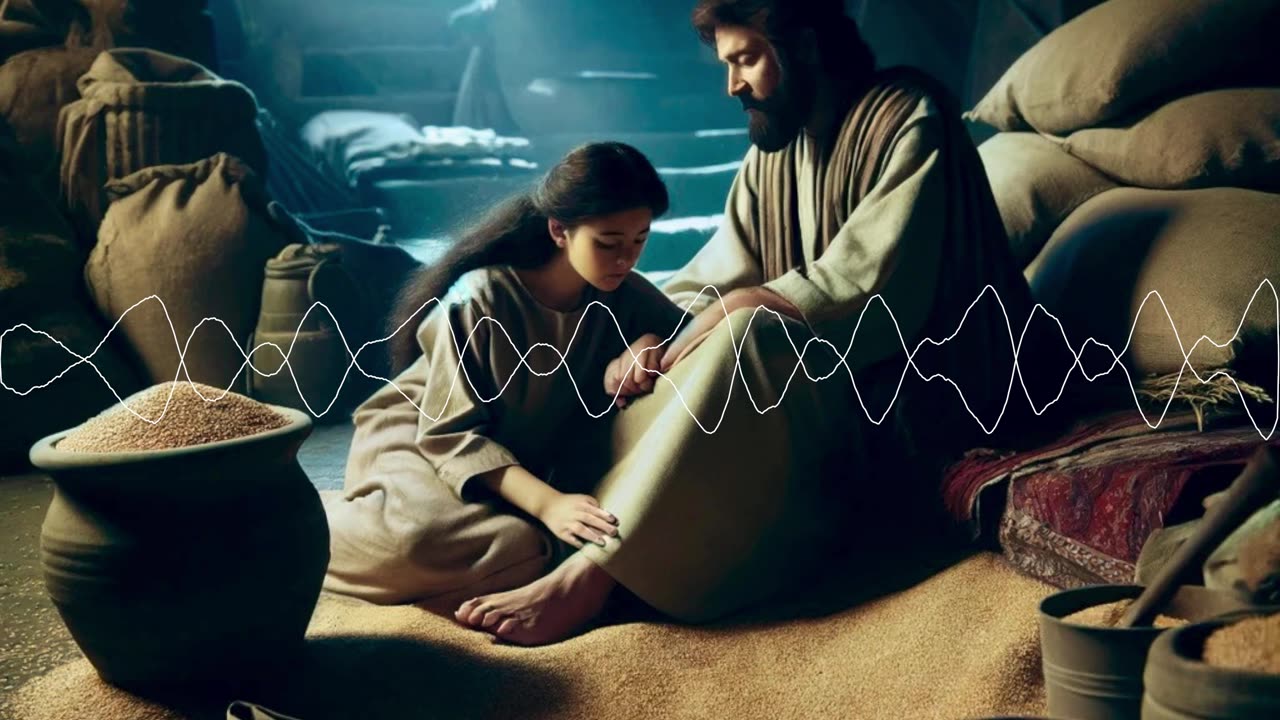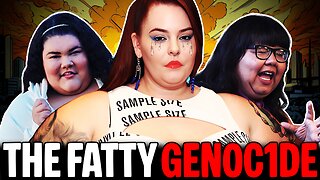Premium Only Content

Ruth 3 Unveiled: A Tale of Redemption and Divine Purpose
Ruth Chapter 3, where strategic guidance from Naomi sets the stage for Ruth's encounter with Boaz, her kinsman redeemer. This chapter unfolds Ruth's courageous act at the threshing floor, a pivotal moment that blends vulnerability with virtuous intent. As Ruth seeks Boaz’s protection and redemption, we witness a beautiful unfolding of Yahuah's providential care and the cultural customs of redemption.
We are deeply grateful to Tracey from England for her beautiful narration of Ruth's story, bringing these ancient words to life with heartfelt sincerity. If Tracey's dedication inspires you and you wish to lend your voice to this sacred endeavor, we warmly invite you to join us. We aim to bring the entire scriptures online, using the ancient names found in the Hebrew Masoretic Text and the Greek Received Text. Whether you speak English, Russian, Spanish, Chinese, or any other language, your contribution can help “go into all the world” these timeless texts for all to breathe in. * Alimelech ("My God is king"): Naomi's husband, whose name reflects a declaration of faith in Yahuah’s sovereignty. The name sets the tone for the family's journey, which, although marked by initial tragedy, is ultimately enveloped in the broader theme of divine kingship and providence.
* Mahlon (possibly "sickness" or "weakness"): One of Naomi’s sons, who married Ruth. His name might reflect the frailty and human suffering that are part of the story but are transformed through God's redemptive plan.
* Kilyon (possibly "pining," "destruction," or "completion"): Naomi’s other son, who married Orpah. His name might signify the decay or end of Naomi’s hopes through the death of her sons, setting the stage for the eventual restoration and new beginnings that follow.
* Orpah ("neck" or "stubbornness"): Naomi's other daughter-in-law, who initially decides to return to Naomi’s homeland with her but ultimately chooses to go back to her own people. Her name might reflect her turning back, as in turning the neck away, from the opportunity to join Naomi and Ruth in Bethlehem.
* Boaz ("swiftness" or "strength"): As previously mentioned, he is the kinsman redeemer whose actions are decisive and whose character embodies strength, a pivotal figure in the narrative of redemption and genealogical continuation.
* Ruth ("companion" or "vision of beauty"): The Moabite widow whose loyalty and devotion not only provide a model of faithful love but also bridge the gap between Moab and Israel, foreshadowing the inclusiveness of God’s salvation.
* Obed ("servant" or "worshipper"): The son of Ruth and Boaz, whose name reflects service and worship, indicative of his role in continuing the worship of Yahuah through his lineage.
* Naomi ("pleasantness" or "my delight"): Through her journey from bitterness back to joy, her name comes full circle, reflecting the restoration of her life’s pleasantness through the birth of Obed.
-
 20:00
20:00
Bearing
2 hours agoTHEY’RE GENOC1DING THE FATTIES 🍔💀
6194 -
 48:56
48:56
Standpoint with Gabe Groisman
2 hours agoTed Cruz Exposes Tucker Carlson's Anti-American Agenda In Bombshell Interview!
17.9K26 -
 13:57
13:57
stateofdaniel
1 day agoFetterman TORCHES the Cruel Left on CNN: “They Want Me to Die” — Dana Bash Freezes
8.44K7 -
 1:07:58
1:07:58
Crypto Power Hour
14 hours ago $10.25 earnedTether Co-Founder Brock Pierce & Martha Fain Wash DC Insider Boom!
53.2K7 -
 13:08
13:08
Cash Jordan
16 hours agoNYC Busses 'SELL OUT' in Minutes... as "Communist" Mayor WAGES WAR on AMERICA
19.4K53 -
 28:48
28:48
Jasmin Laine
19 hours agoCBC PANICS—Narrative COLLAPSES & They Blame TRUMP Live on TV
28.2K29 -
 19:17
19:17
T-SPLY
17 hours agoFederal Judge Prepares To Release Illegal Immigrants "Back Into Chicago!
19.5K34 -
 2:05:12
2:05:12
BEK TV
1 day agoTrent Loos in the Morning - 11/14/2025
22K2 -
 19:26
19:26
The Official Steve Harvey
17 hours ago $1.53 earnedGoing Viral Ain’t Luck — It’s Consistency
16.1K1 -
 11:04
11:04
TheSaltyCracker
19 hours agoEpstein Email Alleges Hillary Had Sexual Affair with ‘Suicided’ Vince Foster
91.4K197